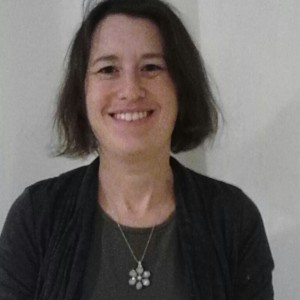I can make planes fall from the sky! I can cause the earth to shake, cars to crash, and buildings to tumble violently to the ground. That’s what my OCD had me believe anyway, though I was never fully convinced. No one has superpowers. Still, I became extremely nervous when thoughts of destruction entered my head, so much so that I felt compelled to perform rituals. This is the power of OCD. You know that what you’re doing is irrational, but you have to do it anyway.
I’m fairly certain my symptoms appeared when I was 10, when the Whittier Narrows earthquake brought buildings and freeway overpasses tumbling down as well as killing several people. It was the first earthquake I’d experienced, and it made me fearful. With OCD you’re constantly seeking certainty, and earthquakes, with their ability to strike without warning, completely upended my notions of safety. For whatever reason, I tied the earth’s sudden eruptions to feeling badly about myself. I thought that I had done something wrong or that I would do bad things in the future, and that would be the cause of another earthquake. So I prayed repeatedly that another earthquake wouldn’t come. I imagined that future temblors would cause my home to collapse, and kill every member of my family.
The intrusive thoughts evolved over time, but they always circled around the same theme: If I didn’t ritualize, everyone I loved would die. At 10, I didn’t know this was OCD, but as I got older I began to piece things together. I knew that being haunted by my thoughts wasn’t healthy, but I was unable to talk about it. Instead, in my teens and early twenties, I found books and articles about other tormented minds and read these furtively. I distinctly remember glancing at the pages of Brain Lock in the bookstore before hurriedly putting it back on the shelf for fear of being caught.
I was lucky in that I believed I knew what was troubling me. Still, I just coped, refusing to speak to anyone about my scary mind. I was too ashamed, too frightened. For years I envisioned terrible things happening to my loved ones: wrecks, heart attacks, cancer – anything that led to death. I had stopped doing ritualized prayers and started imagining each bad thing happening to each member of my family. I believed that if I imagined these terrible things happening, they wouldn’t actually occur. Because life never turns out the way you imagine.
Fast forward to several years later when my OCD “came true.” A friend I’d known for years died in a car accident. Of course, no amount of rituals could’ve stopped it. But you can’t reason with OCD. And, statistically speaking, if you have thousands of thoughts over the course of a lifetime, there’s a small chance one of those thoughts will align with reality. But you can’t reason with OCD.
After the accident, I couldn’t sleep. I couldn’t concentrate. I checked traffic reports every day to make sure my family was safe. I called my parents every night to make sure they were still alive. Finally, after all the stress and shock and trauma, my body simply said no. I wound up in the ER with the worst flu I’d ever had, and I was likely suffering from dehydration. That was my breaking point.
After tearfully telling my mom I couldn’t live with such extreme anxiety anymore, I finally got up the courage to see a psychiatrist. Ultimately, he told me the best thing I’d ever heard about dealing with my disorder. I explained my symptoms and told him I suspected OCD. He wrote some notes and asked me several questions. Finally, he put his pen down and said, “So you’ve been coping with this for more than 20 years?” I nodded, feeling a bit like he was chastising me. But he wasn’t. He was genuinely concerned. He looked at me and said, “I want you to do so much more than cope.”
My doctor is one of the reasons I’m able not only to survive, but to thrive.
Not every day is a perfect one, but I feel much freer now that I’m able to speak openly about my disorder. I no longer fear OCD, and I’m definitely not ashamed to say that I have it. I hope that more people know they don’t have to be scared or ashamed of their illness. No deserves to tolerate horror, and there doesn’t have to be a breaking point. It doesn’t have to get unbearable before you seek help. And I know that’s scary. If you’re not comfortable seeing a therapist, maybe you can find someone you trust and talk to them. Because I want you to do so much more than cope.
 I am an editor, writer, and speaker living in the Sacramento area. I’ve also been a teacher and a door-to-door salesperson. Somehow that was less frightening than living with OCD.
I am an editor, writer, and speaker living in the Sacramento area. I’ve also been a teacher and a door-to-door salesperson. Somehow that was less frightening than living with OCD.
Abby can be found on Twitter.








Leave A Comment